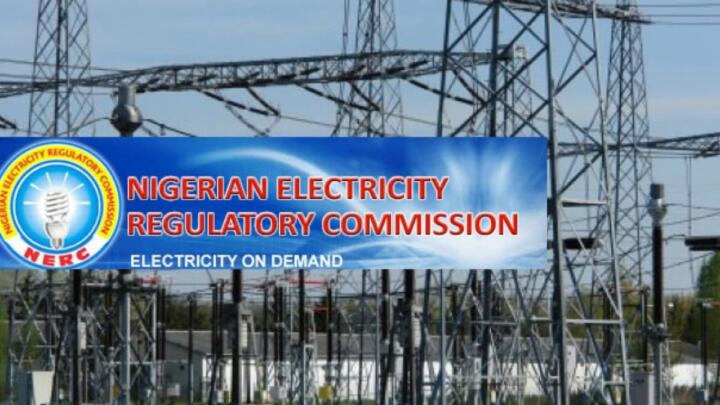The Nigerian Electricity Regulatory Commission (NERC) has called on the Federal Government to strategically deploy the $2 billion fund managed by the Rural Electrification Agency (REA) towards powering industrial and economic hubs across the country. The Commission said the move would accelerate Nigeria’s industrialisation drive, improve energy access, and support small and medium enterprises (SMEs) that depend heavily on stable electricity supply.
Speaking at a stakeholders’ forum in Abuja, NERC Chairman Sanusi Garba emphasized that while the REA has made commendable strides in expanding electricity to underserved rural communities, greater economic impact could be achieved if a portion of its funding is redirected towards industrial clusters and special economic zones.

Garba explained that sustainable industrial growth depends on reliable and affordable energy, adding that deploying renewable energy solutions and mini-grids to industrial hubs would create jobs, attract investment, and enhance productivity across key sectors.
“The REA currently manages a significant pool of funds from various sources, including the World Bank and African Development Bank. We believe that targeted deployment of these funds into industrial zones and manufacturing corridors will yield higher economic returns and drive inclusive growth,” Garba stated.
He noted that Nigeria’s industrialisation efforts have been slowed by inconsistent electricity supply, which compels many manufacturers to rely on costly diesel generators. According to him, redirecting part of the REA fund toward renewable and hybrid energy systems could reduce operational costs and enhance competitiveness for local industries.
Garba added that NERC is collaborating with the Ministry of Power, the REA, and development partners to design policies that support industrial electrification through public-private partnerships. He stressed that expanding reliable power infrastructure to manufacturing zones would help reduce the country’s dependence on imports and strengthen the non-oil sector.
“Energy is the lifeblood of industrialisation,” Garba said. “Nigeria cannot achieve sustainable economic transformation without power security for its productive sectors. We must ensure that investments in electrification translate directly into job creation, innovation, and economic value.”
The Managing Director of the Rural Electrification Agency, Ahmad Salihijo Ahmad, in his remarks, said the agency welcomes collaboration with NERC and other stakeholders to ensure that rural and industrial communities benefit from ongoing electrification programmes. He revealed that REA’s current projects — including solar hybrid mini-grids, standalone home systems, and renewable power for public institutions — are already impacting millions of Nigerians.
Salihijo noted that the REA has received over $2 billion in funding support from international development partners and private investors since 2016, including contributions from the World Bank, the African Development Bank (AfDB), and the Sustainable Energy Fund for Africa (SEFA). The funds, he said, are being utilized to execute projects under the Nigeria Electrification Project (NEP) and other initiatives aimed at achieving universal energy access by 2030.
However, he agreed that scaling up energy access for industrial clusters could further stimulate economic development and create more employment opportunities. “We are looking at ways to extend our reach beyond rural electrification and include commercial and industrial centres, particularly in areas where grid connection is weak or unavailable,” he said.
Industry analysts have lauded NERC’s recommendation, describing it as a pragmatic approach to bridging the gap between energy infrastructure and industrial development. An energy economist, Dr. Bamidele Fadeyi, said channeling REA’s funding into industrial power supply could help Nigeria diversify its economy and reduce reliance on oil exports.
“Most manufacturing zones in Nigeria suffer from inadequate and unreliable electricity supply, which increases production costs. If the REA fund can be directed toward renewable energy projects in these zones, it will make industries more competitive and attract both local and foreign investors,” Fadeyi explained.
Similarly, the Director-General of the Manufacturers Association of Nigeria (MAN), Segun Ajayi-Kadir, expressed support for the proposal, emphasizing that stable and affordable energy remains a top priority for manufacturers. He said access to reliable power could reduce the cost of doing business and enhance local value addition in agriculture, textiles, mining, and other key sectors.
Ajayi-Kadir added, “The energy situation has been one of the most critical challenges facing Nigerian manufacturers. We are glad that NERC is advocating for a strategic use of available funds to address this. A stable electricity supply will enable our members to expand production and compete effectively with imported goods.”
The call from NERC comes at a time when the Federal Government is intensifying efforts to reform the power sector, attract private investment, and diversify the energy mix. The government has also reiterated its commitment to achieving net-zero emissions by 2060, emphasizing renewable energy as a key component of its strategy.
By redirecting REA’s $2 billion fund to industrial hubs, experts believe Nigeria could simultaneously achieve its electrification goals and industrial growth targets. This approach, they argue, would position the country to maximize the benefits of the African Continental Free Trade Area (AfCFTA) by powering local production and reducing trade deficits.
As discussions continue among stakeholders, NERC has pledged to continue engaging the REA, Ministry of Power, and private sector partners to ensure that the nation’s energy policies and investments deliver maximum socio-economic impact.
Support InfoStride News' Credible Journalism: Only credible journalism can guarantee a fair, accountable and transparent society, including democracy and government. It involves a lot of efforts and money. We need your support. Click here to Donate
